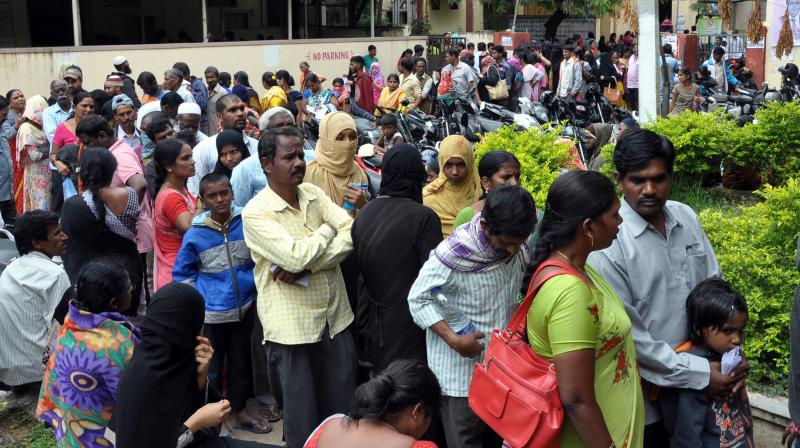Dengue reigns over Hyderabad

Hyderabad: Dengue is in town to stay. The city will witness more dengue cases for at least the next three weeks — belated war-footing efforts by the government
and municipality notwithstanding — as the mosquito Aedes aegypti has proliferated in humungous numbers, say doctors. Every area in the city is recording ever-increasing cases of dengue, as of Tuesday.
In the five big corporate hospitals, there are over 150 cases each of fevers, which are testing positive for at least one of the triad of ailment — dengue, malaria and typhoid. The mid-sized hospitals in town, the 50 to 70-bed scale, are reporting being filled to the last bed, with fever cases testing positive for vector borne diseases. Similarly, smaller hospitals of up to 25 beds, oft located in periphery areas, are full with patients with similar cases.
The government hospitals have patients admitted to over 100 beds each with fever cases. Fever Hospital has more than 500 beds but has 800 patients. The Niloufer Hospital has 1,000 beds but over 1,700 patients, of which, 70 per cent are fever cases. When smaller hospitals reach the brim of capacity, cases of patients showing deterioration or complicated case histories are being referred to higher centres and better-equipped hospitals, but with no beds available, they are being sent back.
A senior paediatrician in a private hospital in the city, said, “In the last one week, I was forced to send away 10 patients as there is no bed. There is no vacant
ventilator available as complicated cases require them. The situation is very bad but the government is not even willing to acknowledge it.”
With a season of alternating dry and wet cycles on, the number of dengue cases will persist, and increase, for next three weeks.
The preventive measures that the government, especially the health ministry and the GHMC ought to have taken up in the first week of June, have been taken now — in September. The two month delay has led to a major increase in mosquito population.
The life span of the Aedes aegypti mosquito is about 30 to 40 days. The infected mosquito is active for a month and can move around at least 400 feet.
Due to lack of proper control measures, this breed of mosquito has got a free movement and has spread to all parts of the city, leading to a heightened spread of the disease.
Dr Parag Shankar, critical care specialist, Rainbow Hospitals, explained, “we are seeing two types of cases. One, where the patient is coming with dengue fever
but the situation can be controlled. The second case is where patients come in with pre-existing or already developed complications, and require aggressive
treatment. During the process of treatment, they are succumbing as immune system of the body is responding too strongly to viral load in the body.”
The patients who are obese are presenting even more complications as the surface area of the body is more, and for that reason, the spread of the virus is high in the body, explained doctors.
Senior government doctors stated that they are seeing more complicated cases this year than the last few years as private hospitals are full. A senior government doctor explained, “the situation is bad but we have been warned not to speak to the media, or reveal any numbers, including numbers of deaths. The complete health department has been warned into silence by the government.”

